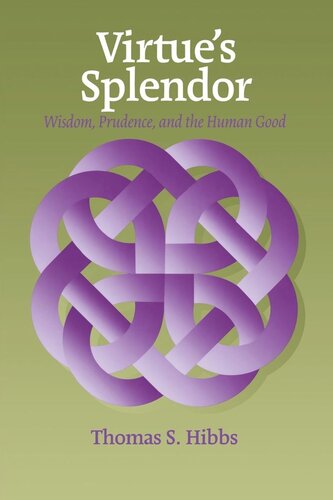

Most ebook files are in PDF format, so you can easily read them using various software such as Foxit Reader or directly on the Google Chrome browser.
Some ebook files are released by publishers in other formats such as .awz, .mobi, .epub, .fb2, etc. You may need to install specific software to read these formats on mobile/PC, such as Calibre.
Please read the tutorial at this link: https://ebookbell.com/faq
We offer FREE conversion to the popular formats you request; however, this may take some time. Therefore, right after payment, please email us, and we will try to provide the service as quickly as possible.
For some exceptional file formats or broken links (if any), please refrain from opening any disputes. Instead, email us first, and we will try to assist within a maximum of 6 hours.
EbookBell Team

4.7
106 reviewsIn recent years, there has been a remarkable resurgence of interest in classical conceptions of what it means for human beings to lead a good life. Although the primary focus of the return to classical thought has been Aristotle’s account of virtue, the ethics of Aquinas has also received much attention. Our understanding of the integrity of Aquinas’s thought has clearly benefited from the recovery of the ethics of virtue.
Understood from either a natural or a supernatural perspective, the good life according to Aquinas involves the exercise not just of the moral virtues, but also of the intellectual virtues. Following Aristotle, Aquinas divides the intellectual virtues into the practical, which have either doing (prudence) or making (art) as an end, and the theoretical or speculative, which are ordered to knowing for its own sake (understanding, knowledge, and wisdom). One of the intellectual virtues, namely, prudence has received much recent attention. With few exceptions, however, contemporary discussions of Aquinas ignore the complex and nuanced relationships among, and comparisons between, the different sorts of intellectual virtue. Even more striking is the general neglect of the speculative, intellectual virtues and the role of contemplation in the good life.
In Virtue’s Splendor Professor Hibbs seeks to overcome this neglect, approaching the ethical thought of Thomas Aquinas in terms of the great debate of antiquity and the Middle Ages concerning the rivalry between the active and the contemplative lives, between prudence and wisdom as virtues perfective of human nature. In doing so, he puts before the reader the breadth of Aquinas’s vision of the good life.